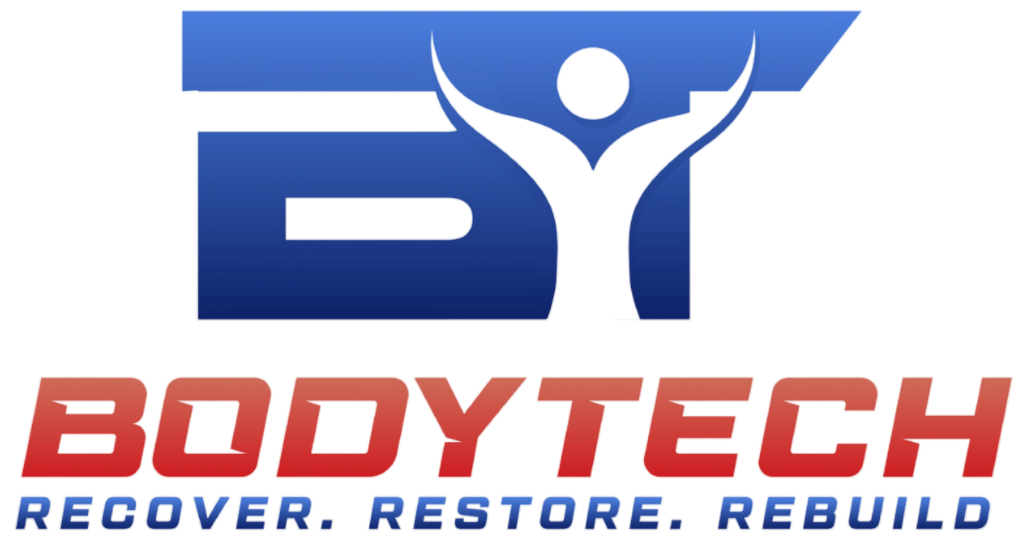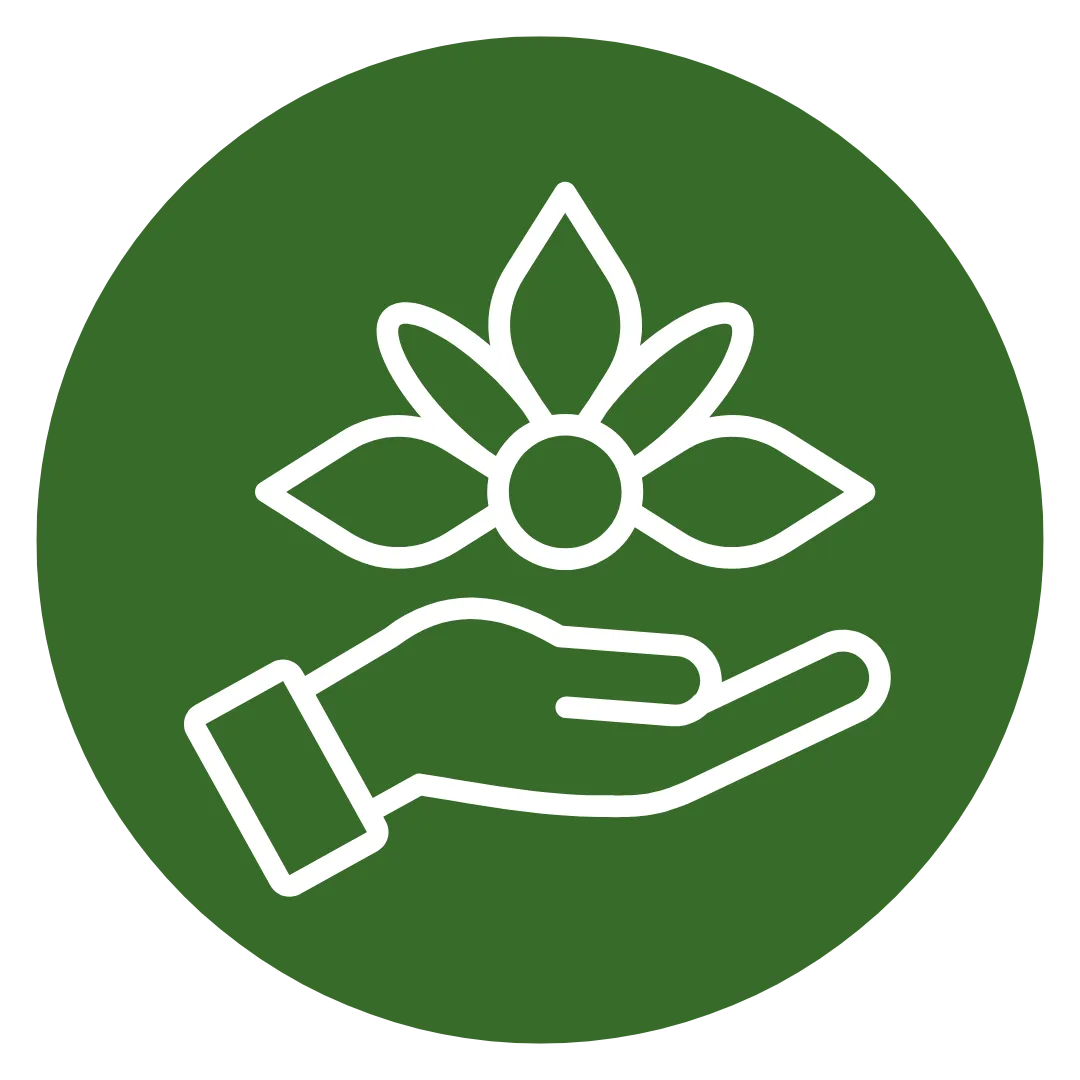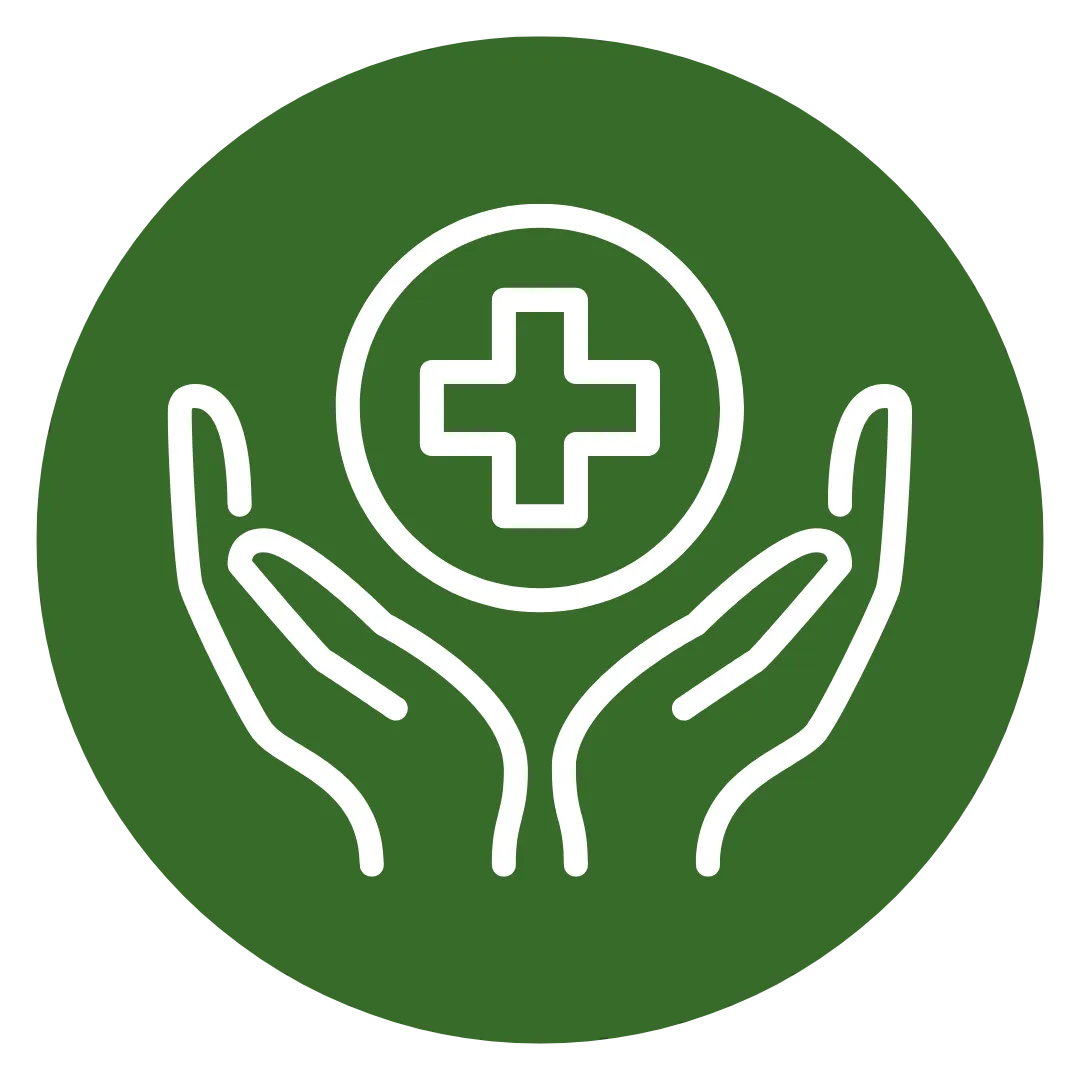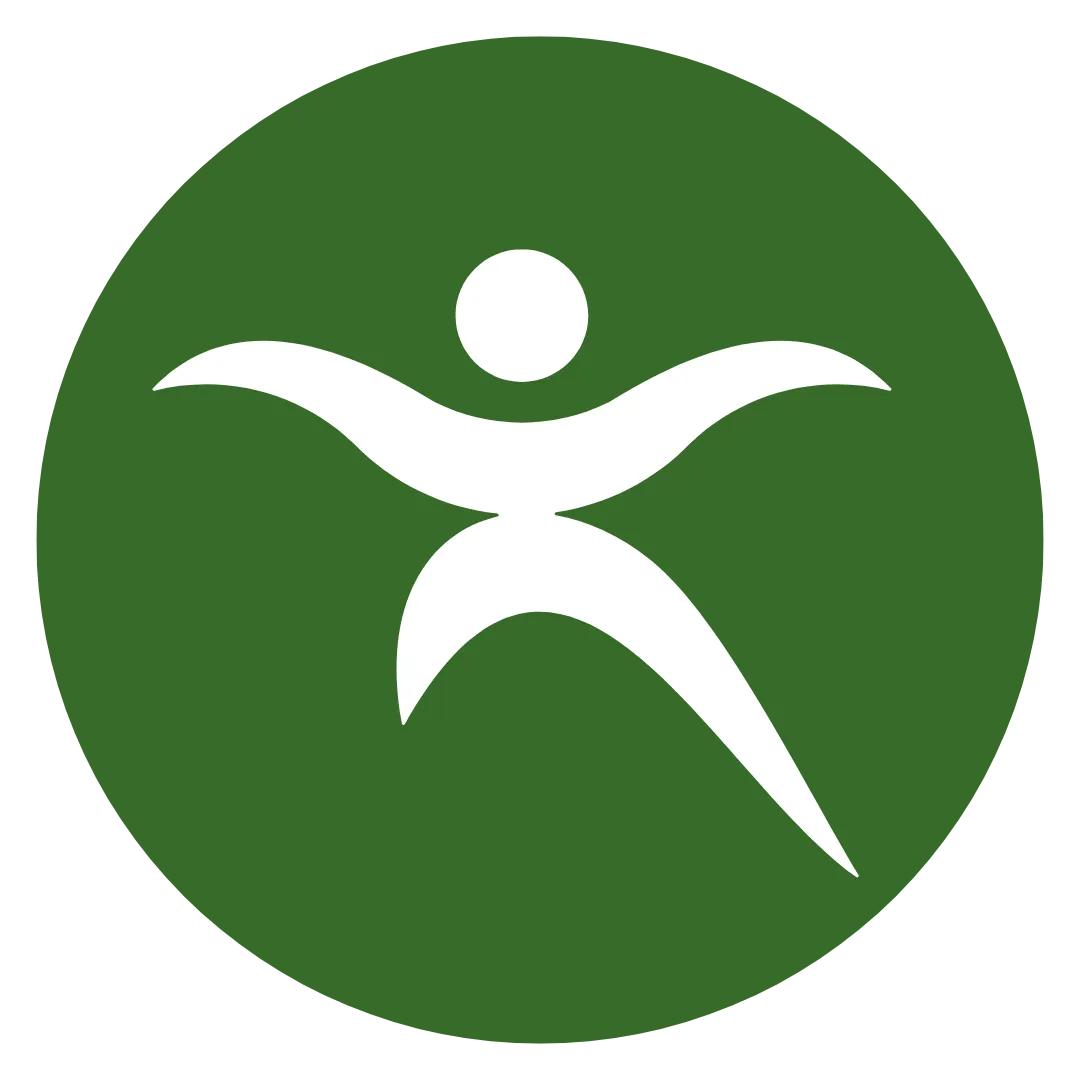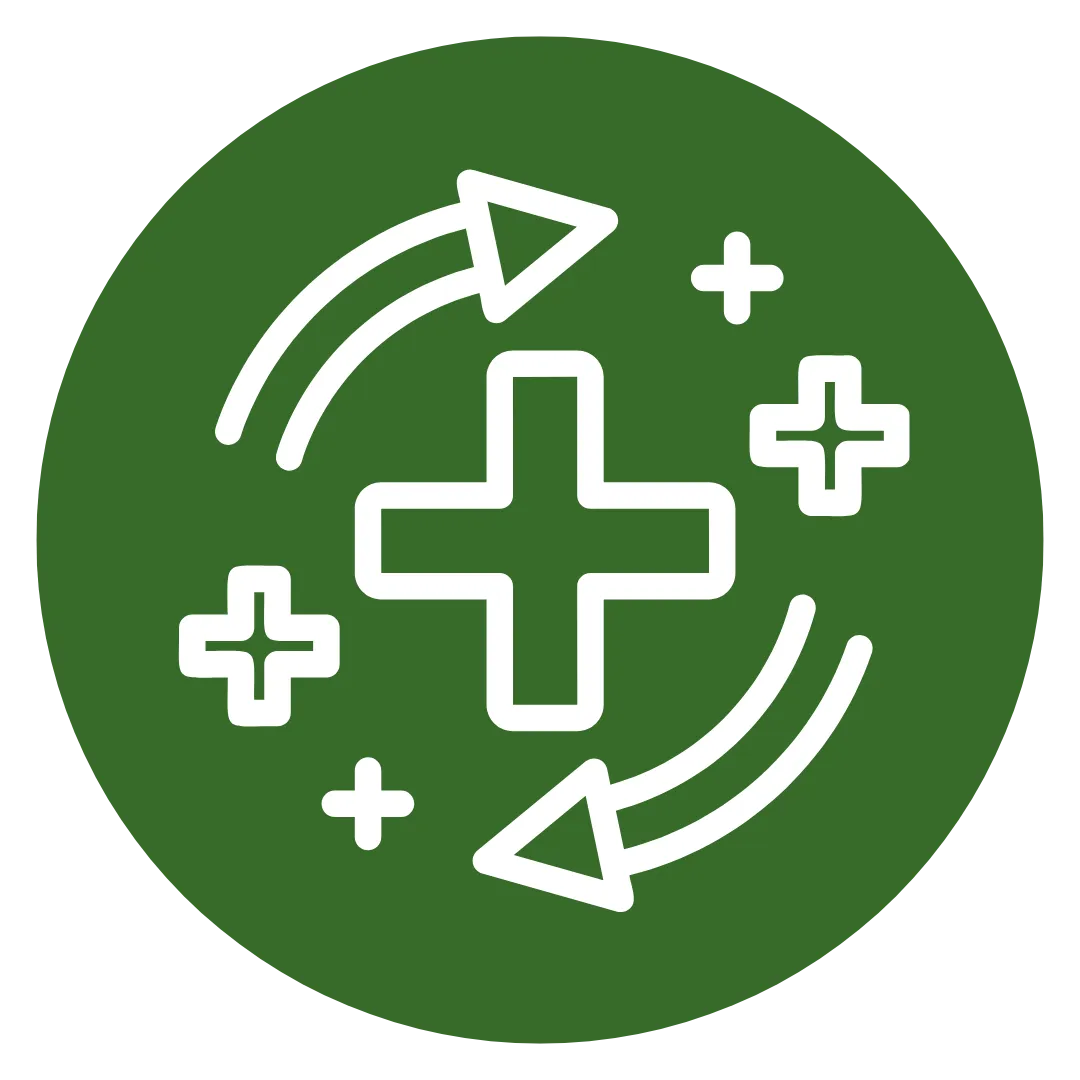RECOVERY. REDEFINED.
MOVEMENT IS MEDICINE.
HEALING STARTS HERE.
BodyTech is built for people who refuse to let pain define them. We make the connection between science, movement, and recovery — and turn it into real results.
About Us
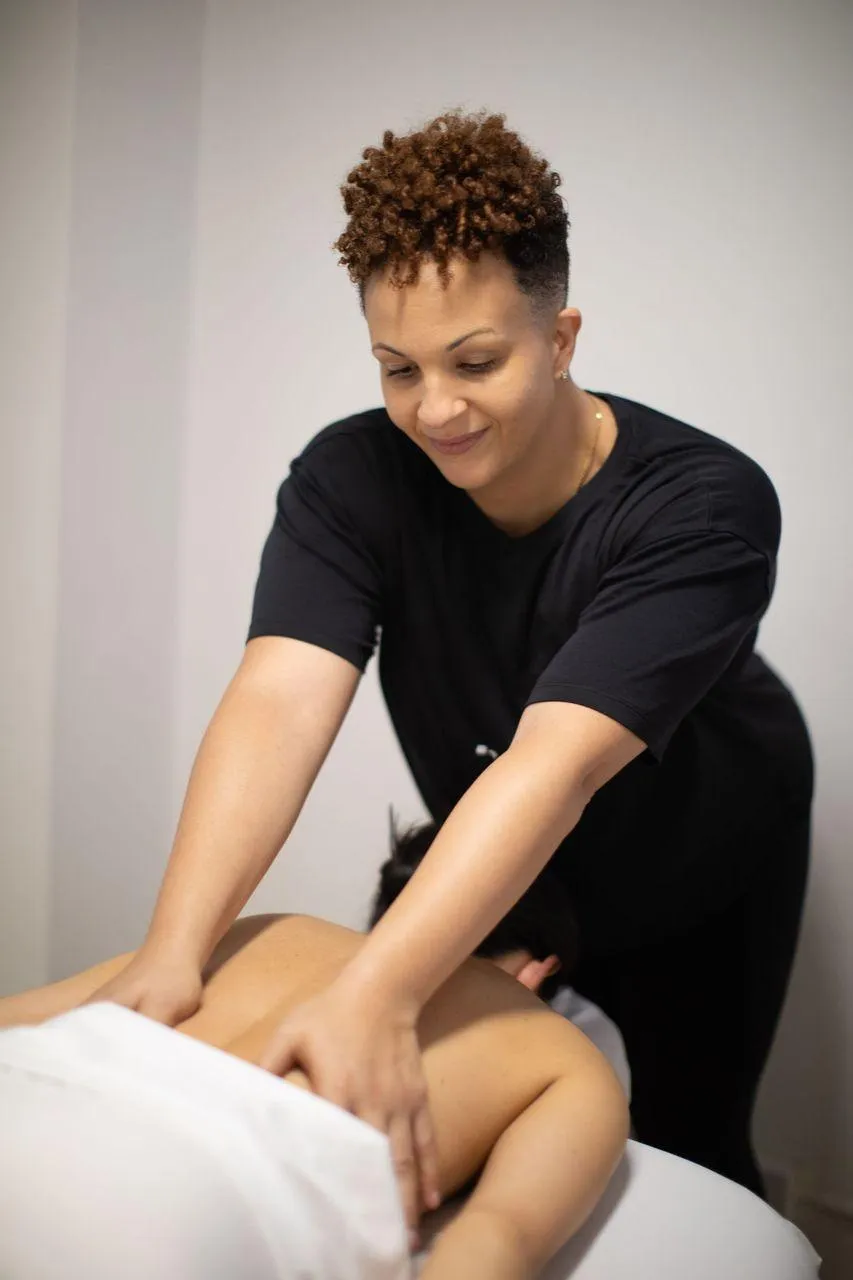

Built for Healing.
Backed by Purpose.
About BodyTech
Built for Healing.
Backed by Purpose.
At BodyTech, recovery isn’t just what we do — it’s who we are.
BodyTech was created to transform the way people experience healing: through movement, intention, and a deep understanding of the human body’s power to rebuild.
Whether you’re navigating post-surgical recovery, chronic pain, or performance plateaus, BodyTech provides the strategies, tools, and support to help you move forward with strength and purpose.
Our Services
Your Recovery, Your Way.
featuring
THE PAIN PLAYBOOK
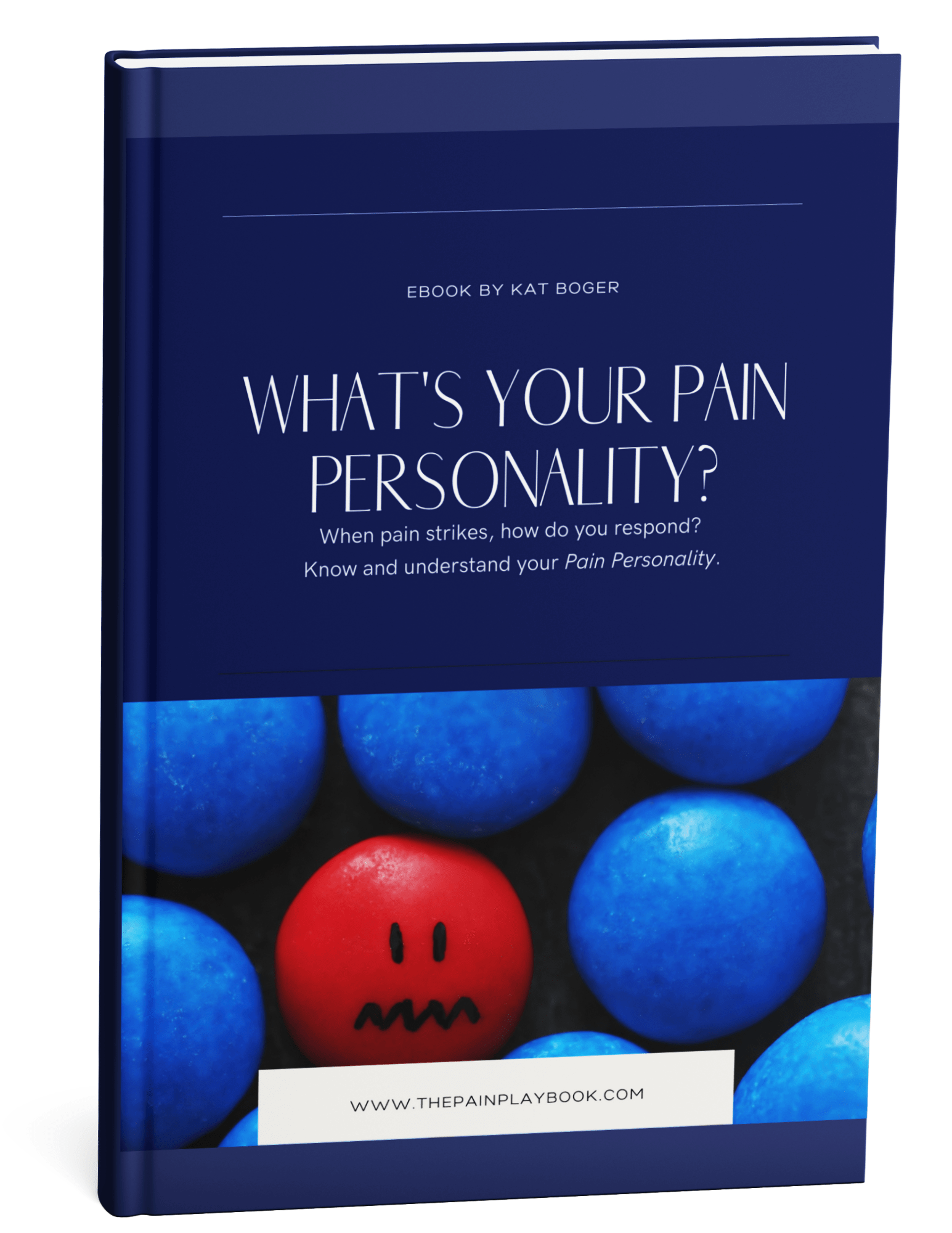
Because Healing Isn’t Just Physical. It’s Personal.
The Pain Playbook is the education hub powered by BodyTech where we turn science and experience into self-management strategies you can use. From stress and pain to hormonal health and recovery hacks, we explore the why behind the work and how to reclaim control over your healing journey.
WHY BODYTECH?
Experience You Can Feel. Expertise You Can Trust.
Recovery built around you, not just your diagnosis.
Movement-based solutions rooted in science and experience.
Coaching that empowers you to self-manage, not just survive.
A team that treats you like a person, not a protocol.
Real Stories. Real Recovery.

Alex C.
trainer with hip pain & discomfort)
Alex C.
trainer with hip pain & discomfort)

Kat is a magician! It took her literally one minute to figure out what was causing my problems and I walked out pain free after one session!

Theresa P.,
client with lymphadema
Theresa P.,
client with lymphadema

Kat is a wonderful caring professional therapist.

Rob F.
Rob F.

Kat is amazing and, hands down the best in the business.

Clea M.
Clea M.

Pedro has been an incredible trainer with an impressive depth of knowledge and experience. At 55, I’m stronger than ever and excited to see what I can accomplish. With Pedro showing me, I can exceed my own expectations.

Stephanie W.
Stephanie W.

In the time that I’ve been training with Pedro, I’ve become stronger and fitter.”

Peter G.,
marathon runner
Peter G.,
marathon runner

I think I have a pretty low tolerance to pain, but Kat does a great job of getting deep into my muscles without causing a lot of pain."
Browse Our Articles
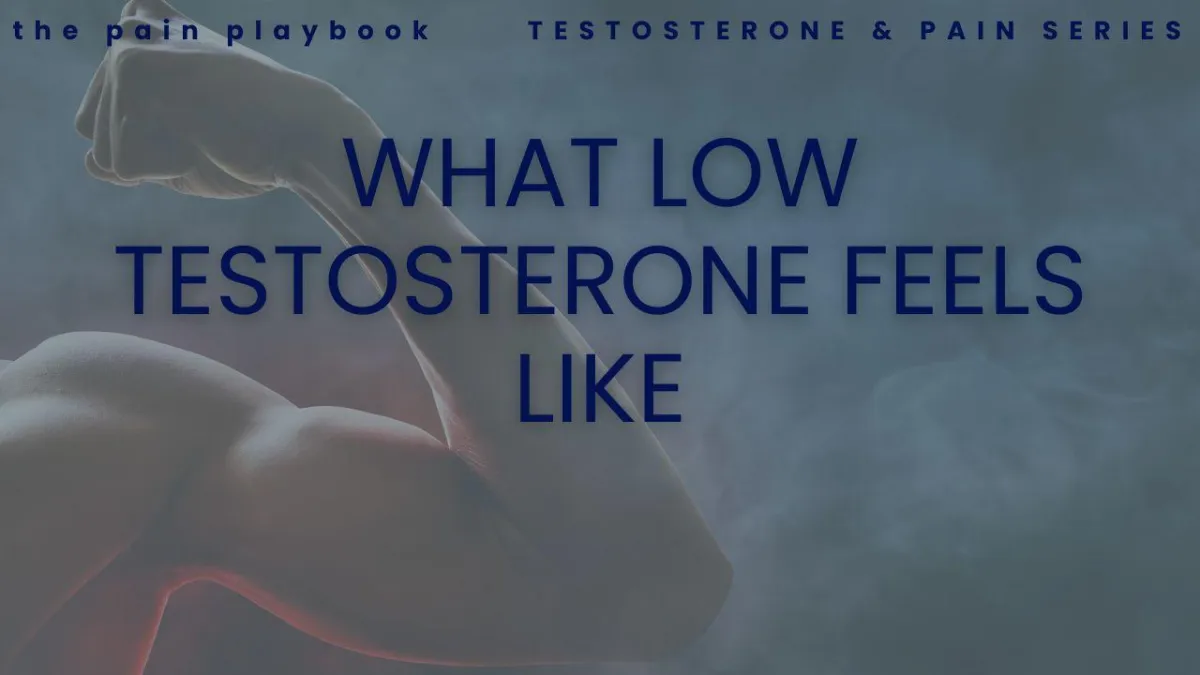
What Low Testosterone Feels Like
Testosterone & Pain | Part 1
What Low Testosterone Feels Like
Pain doesn’t always come from overtraining or injury. Sometimes, it comes from under-recovery and lack of sleep. And sometimes it comes from from an even deeper hormonal issue: low testosterone.
What is T
To begin this conversation, let’s get clear on what testosterone (T) actually is. Testosterone is a hormone that plays a major role in growth, tissue repair, bone density, mood regulation, and metabolism. While it’s often labeled the male hormone, it’s just as essential for women, though produced in smaller amounts. Balanced testosterone supports muscle tone, energy, mental clarity, libido, and pain regulation in everyone.
Testosterone is commonly associated with men, but it plays a crucial role in both men and women when it comes to recovery, inflammation, and pain regulation.
Levels begin to decline naturally with age—typically starting in the early 30s for men and mid-30s to 40s for women. Lifestyle stressors, poor sleep, nutritional gaps, and medications can cause levels to drop even sooner. For athletes and highly active individuals, testosterone levels may be slightly higher at baseline, but they’re also more vulnerable to sudden drops from overtraining, under-recovery, or excessive caloric restriction.
When testosterone dips too low? The body starts to speak.
Signs You Might Be Dealing with Low T (and might not know it):
You feel sore for days after a light workout
You wake up tired no matter how long you slept
Your mood feels flat or anxious
Libido has tanked
You’ve lost strength or muscle tone
Chronic pain is increasing without clear cause
These symptoms are often brushed off as aging, stress, or just life. But when testosterone is too low, the nervous system becomes more sensitive, recovery slows down, and pain can stick around much longer than it should.
Why Testosterone Matters for Pain
Testosterone helps regulate inflammation, muscle repair, and nerve sensitivity. Low T means:
Increased inflammatory response
Decreased collagen repair and tissue rebuilding
Higher sensitivity to pain stimuli
For men, testosterone naturally declines with age. However, high cortisol from chronic stress or poor sleep can further suppress hormone production. Studies show that even short-term sleep deprivation lowers morning and afternoon testosterone levels. Environmental factors also play a role: exposure to chemicals like BPA and phthalates found in plastics, has been linked to widespread reductions in testosterone and reproductive health issues. Research also indicates that today’s generation has measurably lower T than previous ones, likely reflecting cumulative stress and changes in the environment.
For women, levels shift dramatically with age, stress, or hormonal birth control. These levels often go undetected. Studies have shown that hormonal contraceptives suppress your body’s natural testosterone levels, sometimes by as much as 50%, which can impact energy, libido, and pain perception. During perimenopause and menopause, hormonal shifts and reduced hormone production leads to a significant drop in circulating testosterone, often contributing to fatigue, loss of muscle tone and strength, mood changes, and increased pain sensitivity.
The BodyTech Approach
At BodyTech, we help clients restore their recovery potential through movement, breathwork, nervous system education, and hormone-informed strategies.
Low testosterone might be part of that puzzle. And while there are benefits from medical treatment and prescriptions, there are also many natural strategies and options to explore to begin turning things around.
Coming Up Next:
In Part 2, we’ll dive into how testosterone affects women specifically and why it’s often the missing piece for clients navigating stubborn pain.
Want to explore hormone-informed coaching or recovery care?
DM @bodytechnyc or visit bodytechnyc.com to learn more.
References:
1.Leproult, R., & Van Cauter, E. (2011). Effect of 1 week of sleep restriction on testosterone levels in young healthy men. JAMA. https://doi.org/10.1001/jama.2011.836
2. 2. Hauser, R., et al. (2006). Phthalate exposure and human semen parameters. Epidemiology. https://doi.org/10.1097/01.ede.0000208472.91395.17
3. 3. Travison, T. G., et al. (2007). A population-level decline in serum testosterone levels in American men. The Journal of Clinical Endocrinology & Metabolism. https://doi.org/10.1210/jc.2006-1375
4. 4. Zimmerman, Y., et al. (2014). Effects of combined oral contraceptives on testosterone levels in healthy women: a systematic review and meta-analysis. Human Reproduction Update. https://doi.org/10.1093/humupd/dmt038
5. Davis, S. R., & Wahlin-Jacobsen, S. (2015). Testosterone in women—the clinical significance. The Lancet Diabetes & Endocrinology. https://doi.org/10.1016/S2213-8587(15)00038-3
Ready to Move Forward?
Whether you’re recovering from surgery, managing pain, or ready to redefine how you move through life, we’re here for it. Recovery starts with the first step. Let’s take it together.
